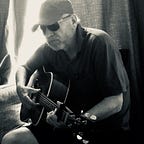A Job Interview from the Twilight Zone
By Michael Willard
I am not a fan of résumés. They are wonderful documents for re-inventing one’s self; and, I suppose, can be a guide as to education, previous employment, and other historical confetti.
I particularly hate those that start with a preamble, like it’s the US Constitution or the Magna Carta: ”Objective: I am a self-motivated person and want a challenging position that…”
For once, I would like to read a resume proclaiming, “I’m not very motivated and prefer a position that could be handled from a Sealy Posturepedic mattress.”
At the least, that would inspire curiosity.
Most résumés have an average life of 12-seconds, about the same as the soldier with the flame thrower in World War II. I’m not sure this is a scientific fact, but I read it somewhere.
In November 1976, I prepared a résumé, thinking it was the proper course for employment. The story goes like this:
I went to work as Sen. Robert Byrd’s press secretary one month before his being voted by his colleagues to the top leadership position in that august body. It was only my second ever trip to the nation’s capital. I had no idea the role of a Majority Leader.
Byrd’s office was then located in the basement of the Russell, or the Old Senate Office Building. His then-current press secretary, John Guiniven, was leaving to work for an oil company, and John thought I might be interested in his position.
My reputation as a wire service bureau chief in Kentucky and West Virginia — a position Guiniven had also held — was relatively solid. I was and am a damn good newsman.
However, Guiniven had never set eyes on me, and he couldn’t help wondering if I had shoulder-length hair and a Fu Manchu mustache. I was properly hirsute-less under my lip and with medium longish hair correct for the 70s.
Byrd seemed such a small man sitting behind a desk the size of the carrier Enterprise. The room was dark, illuminated only by a green lamp. For a full minute, he didn’t look up from the papers he was studying.
He also wasn’t smiling. Then, right out of the interview box, he asked: “Do you have a drinking problem?”
“Uh, what sir?”
“Do you have a problem with alcohol?”
“No sir, I take a drink now and then, but I don’t have a problem.”
This was a fairly subjective question, and the wiggle latitude was difficult to measure. I did have a fondness for Jack Daniels and a smidgen of branch water.
“What about absenteeism?”
I almost jumped out of my chair with enthusiasm. “No sir, I hardly missed a day in the last ten years.
“Okay, that will be all,” he dismissed.
“Would you like to see my résumé, sir?”
I was proud of my creative work. Not having created a résumé in years, I copied a form from a book. I left the chair and took a step toward him.
“No, not really,” he deadpanned.
I backed out of the room feeling I had kissed away my opportunity to work as a press secretary for a person about to become one of the most important people in the United States.
However, I was philosophical.
This guy, I thought, was spooky. I’d rather swat flies for Howard Hughes or chase golf balls for Gerald Ford. Besides, I argued to myself, I was a newsman, a reporter, and being a flack for some political lard ass wasn’t my cup of tea.
They were empty thoughts. I wanted the job.
Outside Byrd’s office, I looked at Guiniven, who had offered me up for slaughter.
“I screwed up,” I said. “You’ll have to find Beaver Cleaver”, I said, referring to a goody-two-shoes 1950s TV kid on “Leave It To Beaver”.
“Wait a minute,” he said, and then disappeared into Byrd’s office, returning about five minutes later. “He liked you well enough. You’re hired.”
Thus began a globetrotting journey that would take me to the more exotic capitals of the world with Byrd serving most often as an emissary for President Jimmy Carter.
We wrapped up the Panama Canal treaties in no time, pieced the peace agreements back together in the Middle East in a flash, and scared the bejesus out of the Russians with our tough talk on nuclear war which we were generally against.
We got out of Iran after meeting with the doomed Shah in the nick of time (actually, he fell a few months later), and in Beijing, we moved the US toward normalization of relations with China.
It took me years to realize that the Byrd interview was the sanest of my career. The guy asked me a sensible question: “If I hire you, will you show up for work and prove yourself?”
He didn’t care about my politics, my religion, or, God forbid, did I have a piece of paper saying I was qualified to practice common and political sense.
In the final analysis, he simply was saying: “Listen, I don’t know dick about you. Guiniven tells me you’re qualified and will do a good job. We’ll see.”
I was with Byrd for nearly eight years, later becoming director of his leadership office. He was a mentor and friend, and I cherish the experience each day.
Byrd died on June 28, 2010, having served 51 years in the US Senate, the longest-serving member in that chamber’s history.
He was, in my view, a stalwart in the pantheon of truly great senators, and I was proud to have served him.
